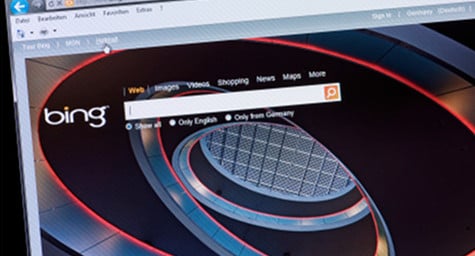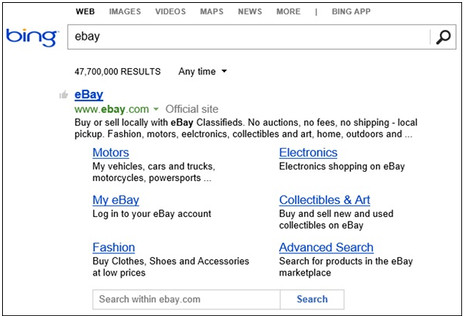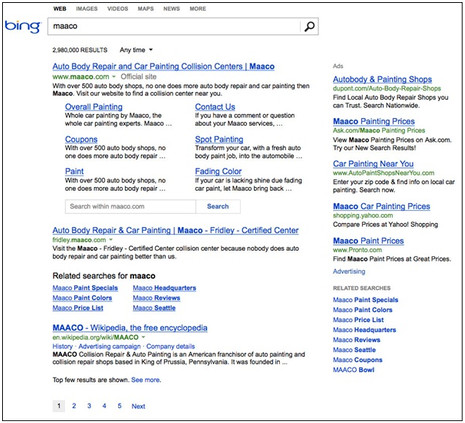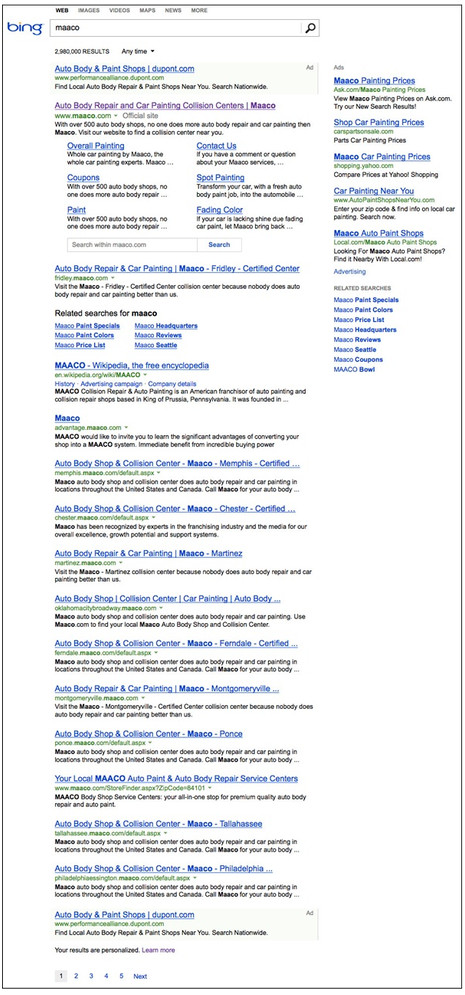Research Shows More Than Half of Bing Users Click on Top Search Result


The Bing Blog recently released a post by Dr. Ronny Kohavi of Bing’s Research & Development team. Kohavi’s insights provided a statistical exploration of how users interact with Bing’s search results during a standard browsing session, suggesting that Bing is in the process of refining its results based on engagement rather than relevancy. Search Engine Land delved into the actual adjustments Bing implemented to enhance its results in a search market dominated by Google.


When Bing shows deep links like this, the third search result on the page, i.e., whatever shows up two spots below what you see above, gets a CTR of less than one percent.
The Internet is more cluttered today than ever before. With link upon link of similar content, search engines as prolific as Bing are refining their results with usability-based technology in order to compete effectively for market share. Bing is no stranger to the essentiality of rankings: “More than 50 percent of Bing users click the first result, and more than 75 percent click there if the first result includes Bing’s deep links,” says Kohavi. Although half of all users are clicking the top search result, only about 4 to 6 percent are clicking on the third search result, and only 2 to 3 percent click on the fourth result. In essence, the lower the ranking, the lower the level of engagement. However, Kohavi states that these results differ when users revisit the search results page by using their back buttons.

The complete page of search results.

The results after clicking on MAACO’s home page for 15 seconds and clicking the back button.
According to Kohavi, “When users click on a result, then hit the browser back button, they typically look lower on the page. Statistics showed that the click-through rate on lower positions are a factor of five to eight times higher after a back button.”
Bing modified its search results in response to the findings. Beginning last summer, “users would first see eight results, then be shown 12 if they hit the back button. By showing extra links after a back button click, Bing says it saw an almost two percent drop in users clicking through to page two,” according to Search Engine Land.
Kohavi also discussed user interaction with “deep links”—the compilation of several search results from one source. According to Bing, “the click-through rate on the block of results is more than 75 percent.” When deep links are involved, the click-through rate (CTR) for the third search result on the page is less than one percent. Bing is extremely conscientious about user search habits, and they typically run more than 100 search experiments at a time.
With that in mind, Bing has launched another modification to its search. On certain searches, Bing will now show as few as four search results in the initial search, and will then increase the results to fourteen if users click the back button. As Kohavi mentioned in his blog, Bing is “now looking at ways to determine whether we should extend the number of search results when we have evidence that users are in exploratory modes (e.g., searching for insurance).” With each experiment and analysis, Bing is moving one step closer to defining search engine specifications and user methodologies.
To learn more about integrating Bing into your search marketing strategy, contact MDG today at 561-338-7797 or visit www.mdgsolutions.com.
MDG, a full-service advertising agency with offices in Boca Raton and New York, NY, is one of Florida’s top integrated marketing agencies. Our 360° approach uses just the right mix of traditional and digital marketing to reach your advertising goals. While some industries may fare better in print and others online, we strive to create a balanced approach, where traditional, digital, social, and search marketing efforts support each other and your message is tailored to the medium. To stay on top of Bing and the latest trends in search marketing, contact MDG today at 561-338-7797 or visit www.mdgsolutions.com.
Read more at SearchEngineLand.
